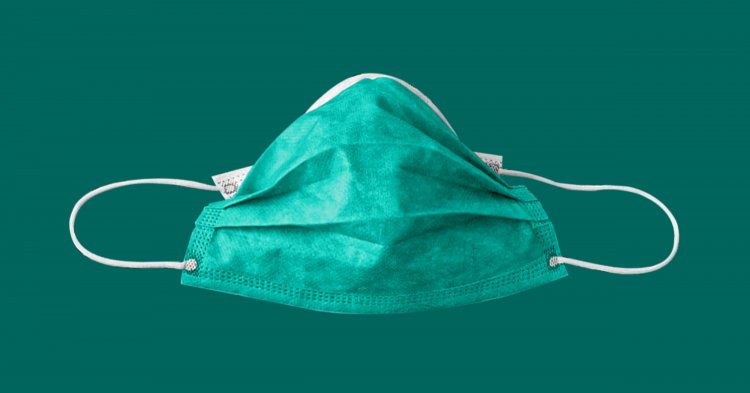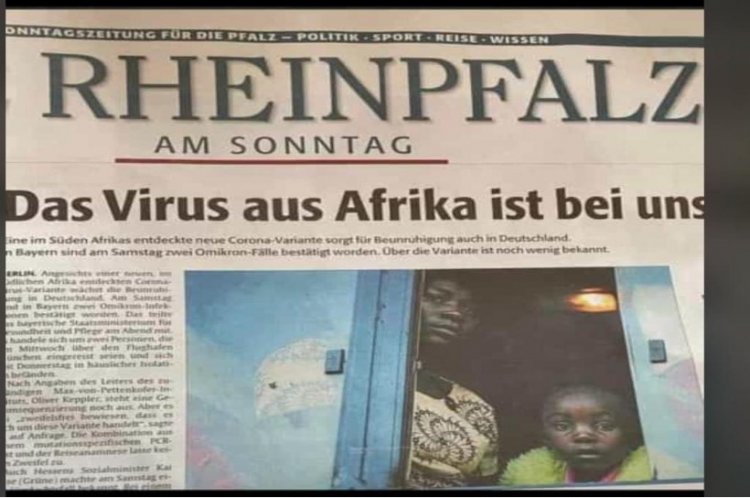"The only thing the prohibition on travel will do is to damage the economies of the affected countries further and undermine their ability to respond to and recover from the pandemic,"
Cyril Ramaphosa, Nov 29, 2021.
On 26.11.2021, The World Health Organization (WHO) classified the B.1.1.529 variant as a SARS-CoV-2 "variant of concern", two days after South African virologists and epidemiologists detected it. Despite scientists cautiously pointing out that existing vaccines can provide some protection against omicron and epidemiologists warning that travel bans may be too late to stop the spread of the Omicron variant, there has been a global rush to restrict travel from Southern Africa. The US, EU, and Canada restricted travel from Southern African countries even before the WHO declared it a concern variant. The European Commission proposed to its Member States to issue an ‘emergency brake' on travel from Southern African countries and other countries affected as preventive measures to curb the spread until they clearly understand how omicron operates.
The President and Health Minister of South Africa have condemned the global rush to issue travel restrictions as unjustified and lacking scientific basis, making Southern Africa a victim of unfair discrimination. The UN Secretary-General António Guterres has also expressed his disappointment and criticised the travel ban as isolation of southern Africa. His condemnation touched on the vaccine inequality between Southern African countries and the wealthier countries that have been quick to issue travel bans. He said that "the people of Africa cannot be blamed for the immorally low level of vaccinations available in Africa". Equally concerning is the loud silence of African regional bodies on the travel restrictions. So far, only the AU vaccine delivery alliance co-chair Ayoade Alakija has responded publicly. She criticised the restrictions as unacceptable and a consequence of vaccine nationalism by wealthy countries.
Since the public announcement by South Africa regarding the emergence of a new variant, more countries have come forward confirming the circulation of the variant within their borders, with some indicating that the virus has been circulating before the announcement made by South Africa and that, in several cases, it is being transmitted by individuals without a travel history to Southern Africa thus indicating community transmission.
The hasty introduction of travel restrictions from Southern African countries is a manifestation of the broken system on which we are basing the fight against COVID-19. The decision to close the border is neither based on science nor does it constructively advance the world’s fight against a relentless virus. They are, indeed, problematic in several aspects.
First, they are inconsistent with the claim that they are a precautionary measure to curb the spread of the virus. Had it been the case, African countries and citizens should not be singled out.
Second, the emergence of new variants was inevitable. Vaccine apartheid has resulted in a considerable proportion of the global population not being vaccinated. While rich countries have fully vaccinated more than 70% of their people and currently administering covid booster shots to their already vaccinated citizens, African countries have fully vaccinated only 6.66% of their population, making the continent the most under-vaccinated continent in the world. Africa has received less than a third of the vaccines it ordered (403 million doses for a continent of 1.3 billion people). International mechanisms such as COVAX have failed to deliver. International solidarity also failed. A structural solution to save human lives seems to have been put aside in favour of profit-making companies supported largely by countries that rushed to impose travel restrictions. To date, the EU, Switzerland and Japan continue to block a waiver put forward by South Africa and India to waive Covid-19 vaccine intellectual property (IP) rights temporarily.
Third, the travel bans unfairly stigmatise the African continent. Instead of celebrating South African scientists for their diligence in tracking the evolution of a situation that represents a danger to the world and doing their part to protect the world, what followed was biased and sensationalised media reportage. It bears saying that some headlines were racially discriminatory. For instance, two headlines in Germany read: Das Virus aus Afrika ist bei uns; translates “The virus from Africa is with us”, and Das wissen wir über die Neue Corona-Variante aus Afrika, translates “This is what we know about the new Corona variant from Africa”. The first headline (see fig 1) was accompanied by a picture of two black people peeping out of a window in despair. Two black people peeping out of a window in despair coronates this cliché depiction of the African continent. It is time to move beyond this racist hangover on Africa.
Fig 1: German Newspaper Reportage of Omicron Virus
Fourth, in a connected world, unless we tackle the virus together, it will circulate. Indeed, while South Africa was the first country to publicly share the findings of its scientific community, thanks to the country having one of the most sophisticated genomic sequencing facilities in the world, this does not preclude the fact that Omicron might have originated elsewhere in the world. The RIVM in the Netherlands reported that it detected Omicron in samples taken between 19 and 23 November 2021, these cases predate South Africa’s announcement.
Fifth, travel bans unnecessarily cripple economies that are already struggling to stay afloat. Such policies appear not to consider the long-term effects of this economic isolation and scapegoating. Knee jerk travel restrictions are expected to cripple an already-struggling tourism sector in Southern Africa. Tourism accounts for about 3% of South Africa’s GDP, 11% for Namibia and 13% for Botswana. A decrease in tourism and lockdowns alone contracted the South Africa economy by 6% in 2020.
Responsible world leaders should go back to the basics if they want to fight COVID-19 effectively. Vaccinating parts of the world while leaving the virus to evolve elsewhere is not an effective strategy. As scientists systematically remind us, the alternative is alternate lockdowns and regular booster shots for an indefinite period — a situation no country can maintain — or an ineffective vaccine that can no longer immunise us from new variants.
Transparency should also remain the cornerstone of the fight against COVID-19. The poor decision to close borders does not advance international cooperation in the fight against the virus. The world cannot afford to disincentivize countries for respecting that principle.
Signed
- Olumide Abimbola, Executive Director - APRI - Africa Policy Research Institute, Berlin, Germany
- Claudia Prempeh, Program Lead - APRI - Africa Policy Research Institute
- Crystal Simeoni, Director - Nawi - Afrifem Macroeconomics Collective, Nairobi, Kenya
- Neema Iyer, Executive Director - POLLICY, Frankfurt, Germany
- Jason Rosario Braganza - African Forum and Network on Debt and Development (AFRODAD)
- Stacey Links - University Lecturer and Researcher, Leiden University, The Netherlands
- Nana Adu Ampofo, Managing Partner - Songhai Advisory
- Willson Chivhanga - Executive Director, For Equality Africa
- Faten Aggad, advisor in international negotiations, Cape Town, South Africa
- Lynda Chinenye Iroulo - German Institute for Global and Area Studies, Hamburg, Germany
- Chenai Chair - My Data Rights (Africa) curator, Johannesburg, South Africa
- Alvin Mosioma, executive director TJNA, Nairobi, Kenya
- Bhaso Ndzendze, Senior Lecturer, University of Johannesburg, Johannesburg, South Africa



